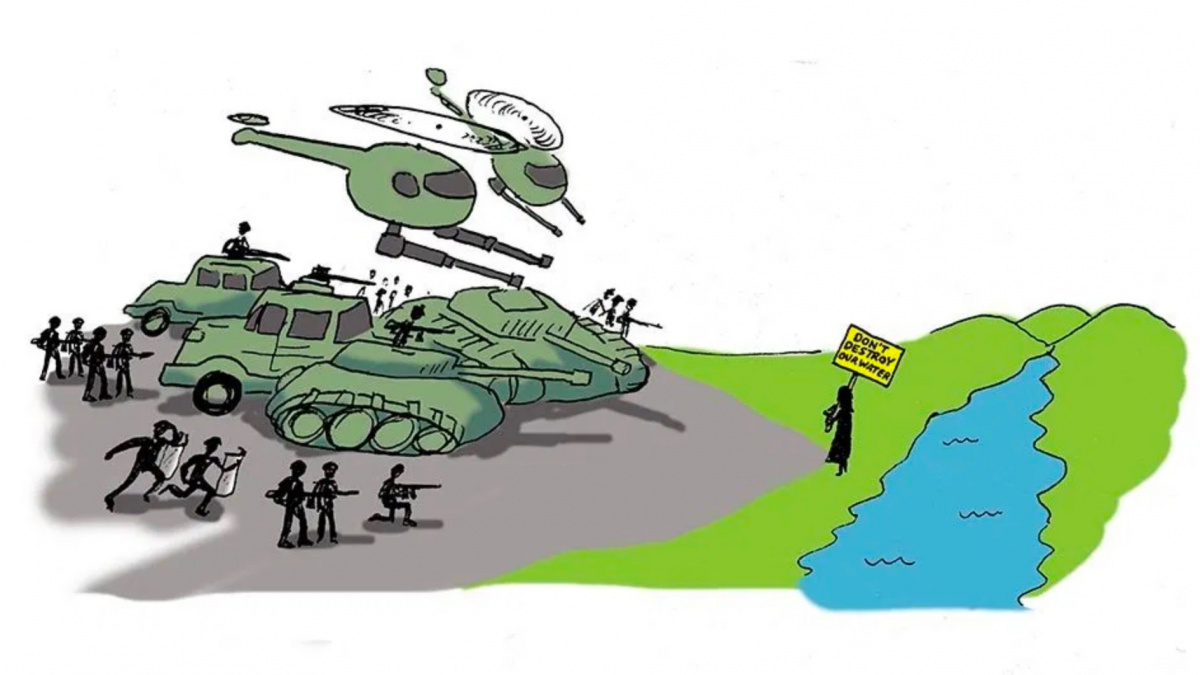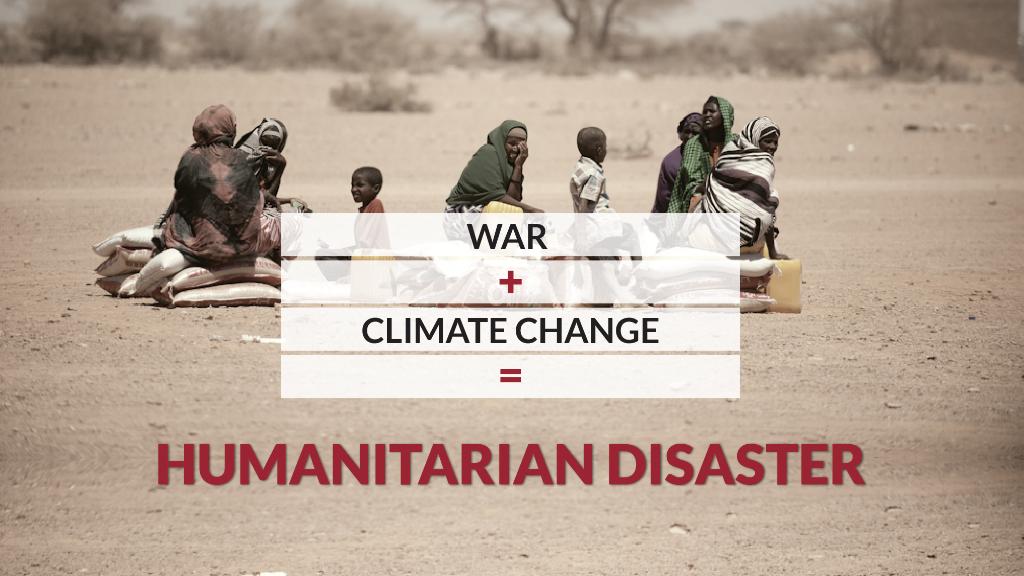War or Climate?
by Dr Francesca Di Palo, Sustainable NI

“It's difficult to talk about climate change with this war going on”, somebody said to me a few days ago.
It's true, of course, that the ongoing conflict in Ukraine overshadowed the news of the release of the latest IPCC report on 28th February and the fact that parts of Antarctica are 40°C warmer than their March average.
So, my question is, what should we be focussing on right now: War or Climate? Maybe it isn't a binary choice. Because climate change causes war and wars affect the climate, the two are inextricably linked.
“Burning oil, gas and coal is causing warming and impacts we need to adapt to. And Russia sells these resources and uses the money to buy weapons. This is a fossil fuel war. We cannot continue to live this way; it will destroy our civilisation” said Svitlana Krakovska, head of the 11 IPCC Ukrainian scientist delegation that had to withdraw early from the 2-week negotiation on the wording of the summary report as its members were forced to hide in bomb shelters.
The climate crisis is a threat multiplier because it amplifies and worsens existing threats to peace and safety. Extreme weather, population migration and increased competition for resources like food, water and energy are all factors that weaken internal and external relationships and in the end, lead to conflict. Governments increasingly recognise that the climate crisis is a national security risk. That's why the US Army has a climate strategy to deal with future conflicts caused by increased competition for natural resources.
Extreme weather, population migration and increased competition for resources like food, water and energy are all factors that weaken internal and external relationships and in the end, lead to conflict. Governments increasingly recognise that the climate crisis is a national security risk. That's why the US Army has a climate strategy to deal with future conflicts caused by increased competition for natural resources.
Scientists and campaigners are trying to re-frame the war as a wake-up call to the West to encourage investment in green energy. Mary Robinson, leading climate justice activist and ex-President of Ireland, made an extraordinary plea on The Late Late Show last Friday but no-one seemed to understand the relevance of what she was saying, including host Ryan Tuburdy, who brushed off the words 'our children will have no future' like he had a cameo in Netflix's Don't Look Up.
So, if the war in Ukraine is a fossil fuel war, what are we going to do about it? The EU, which gets 40% of its gas supply from Russia, is planning to increase renewable energy and energy efficiency measures and build liquified natural gas terminals to import gas from other countries.
The UK government on the other hand, which gets between 4-5% of its gas from Russia, is considering lifting the moratorium on fracking as part of an energy policy overhaul despite the fact that it would take years of drilling before production could begin. By which time the UK might not even need gas anymore because it has so much off-shore wind.
The inconvenient truth is that gas and nuclear are far from being a quick fix. The focus should be on lowering gas demand, not increasing gas supply. So let’s keep in mind that when we talk about the climate crisis, we're also talking about war. And every crisis is an opportunity, the war with Russia is no exception.

